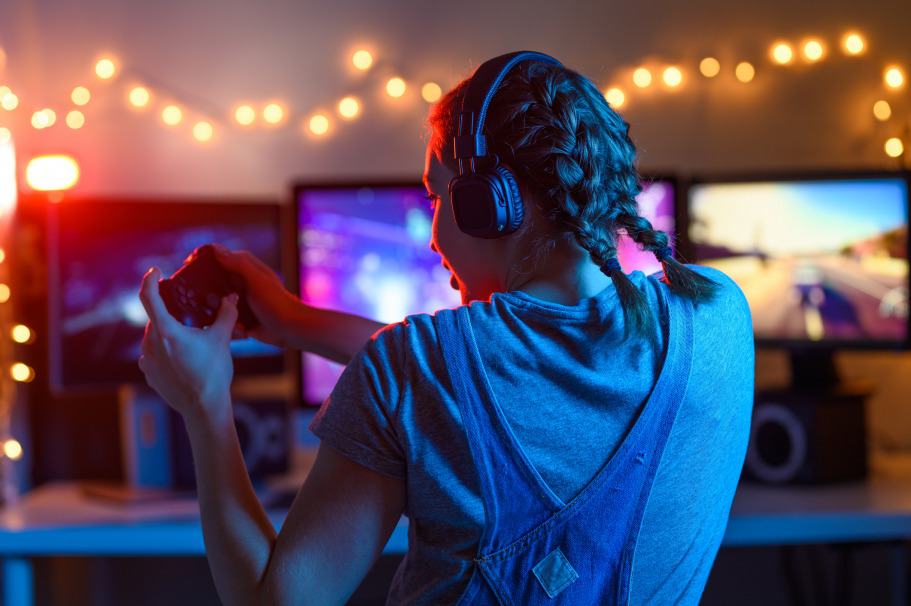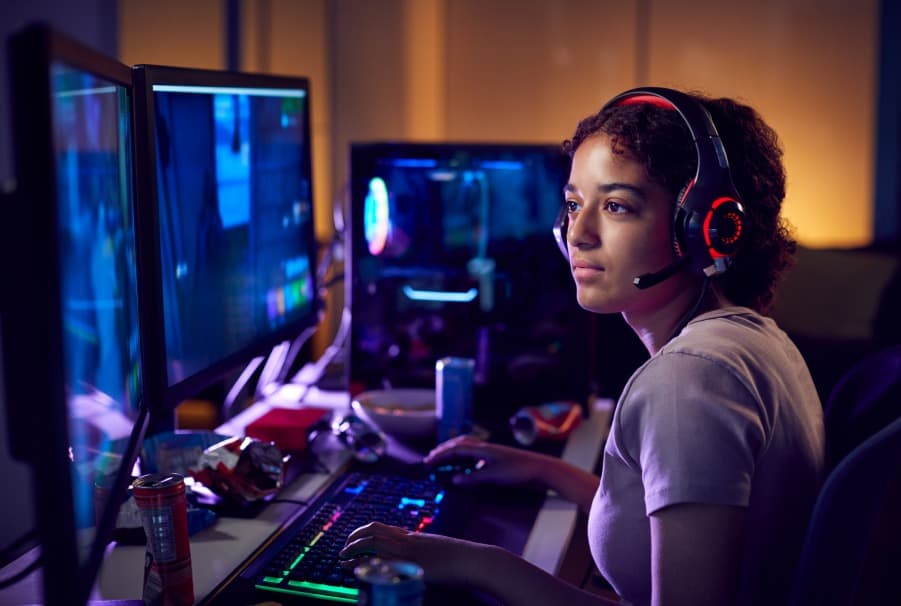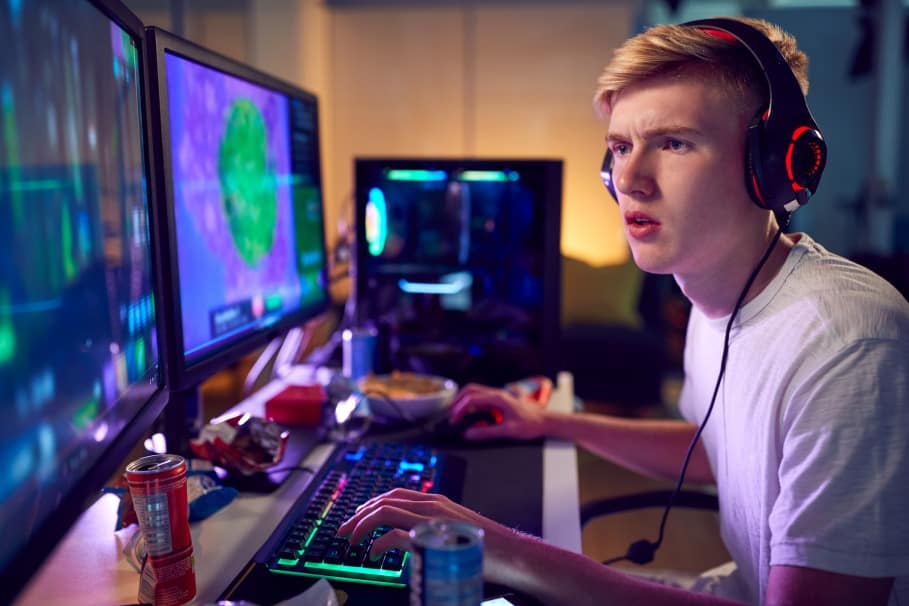Have you ever thought of how much power your gaming computer is using? Do you know how much electricity it uses up when you play Call of Duty?...
Chances are that you have no idea how much electricity it consumes, let alone how much of it contributes to your monthly bill. If this has gotten you curious, read on to know more about your PC’s energy consumption.
What is the Average Power a Gaming Computer Uses?
When people build their gaming PC, they don’t usually wonder how much electricity it uses up. Most people aren’t mindful of it all and then just get surprised on their monthly bill. While this is all well and good if you have the money for it, it’s still important to know how much power it uses so you can do some conserving tweaks here and there.
The average energy consumption of a gaming PC is around 1,400 kWh per year. This is 10 times the power consumed by 10 gaming consoles or 6 regular computers. Can you imagine how much that is for a PC? That’s a lot!

On the other hand, if you are just using a regular PC and all you do is check emails, browse the Web, your PC does not use up a lot of energy. In fact, it’s barely working hard to consume the same number of kilowatts a year. A PC only ever consumes that much energy when you play a game.
How Do You Know Your Own PC’s Energy Consumption?
For obvious reasons, the average stated above will not necessarily apply to your PC. Since most gamers have a customized build, it’s hard to put a number on the actual consumption of a gaming PC based on standard specs. In the end, you have to know your own PC’s energy consumption and here’s how.
First of all, you have to know that you won’t just be looking at your CPU. You will also be looking at your video cards and other parts that require energy consumption (basically, everything). Fortunately, there are online calculators that compute your PC’s electrical consumption. These calculators work by asking you about your components’ specifications. The more information you give, the more accurate the computation will be.
Another way to know your PC’s power consumption is by using a power meter. This works by plugging the meter in a wall outlet and then plugging your PC to the meter. Here, you’ll know your PC’s power usage, assuming that you are running the apps or games you would normally use. Otherwise, if your PC is just using the Web, then you won’t get an accurate meter for your average power consumption.
What is TDP?

If you’re probably wondering what a TDP is, it stands for Thermal Design Power. This is a rating that manufacturers place on CPUs and other PC components to determine power usage. This may be a good gauge of power usage, but you have to keep in mind that the TDP is based on the maximum heat produced by a component when real applications are used.
What are the real applications? How do you determine what is a real application included in the computation of the TDP? These questions are exactly the reasons why the TDP is not an accurate measure for power usage. They can only be helpful to the extent that you have an idea of the power consumption of your PC components.
What Are Some Tips to Reduce Power Consumption of a Gaming PC?

If you’re already alarmed at how much your gaming PC consumes electricity, know that there are ways to reduce it. Here are 5 things that you can try so your electricity bill won’t blow up.
Unplug external devices
Did you know that plugged external devices add up to the power consumption? What’s funny here is that even if you’re not using those devices, they still use up power. A standby hard drive is not completely turned off; hence, there’s still power running through it. So if you’re not using your hard drive, printer, or even your speakers, it’s best to disconnect them once in a while.
Choose a monitor that uses less power
A new monitor can be a necessity especially if you still use CRT monitors. Instead of holding on to these power eaters, it’s best to shift to LCD screens. LCD screens are way more efficient. An average 17-inch LCD screen consumes just around 30 watts max while a CRT screen of the same size uses 100 watts max. That’s quite a big difference!
Maximize the use of Sleep
Another thing you can do is to maximize the Sleep and Hibernate options of your PC. Turning it off and then on after an hour can actually be counterproductive in saving electricity. If you’re just stepping out for an hour or so, it’s best to keep your PC on Sleep because most of the parts will be turned off anyway.
Exit programs that are just running in the background

This is a bit of very old advice, but it’s amazing how a lot of people keep forgetting about it. The tip here is very basic - exit programs that you don’t need. Having a lot of programs turned on in the background uses a lot of energy, especially if those programs use up a lot of power. You will know which programs those are when you visit the Task Manager.
Upgrade your hardware
Normally you wouldn’t think that upgrading will cost you less because you will have to shell out money rather than saving money. However, in the long run, more energy-efficient hardware devices can actually help you save a lot in terms of efficiency and maintenance. For example, if you have an old CPU at home and it’s been there for 5 years or more, then you might want to take this opportunity to replace it. More modern CPUs are able to have better performance without consuming a lot of energy.



1 comment
Interesting article. I was just thinking about the annual usage estimate of 1400kwh and wondered how many hours per day or week that this is based on?
Comments are closed.